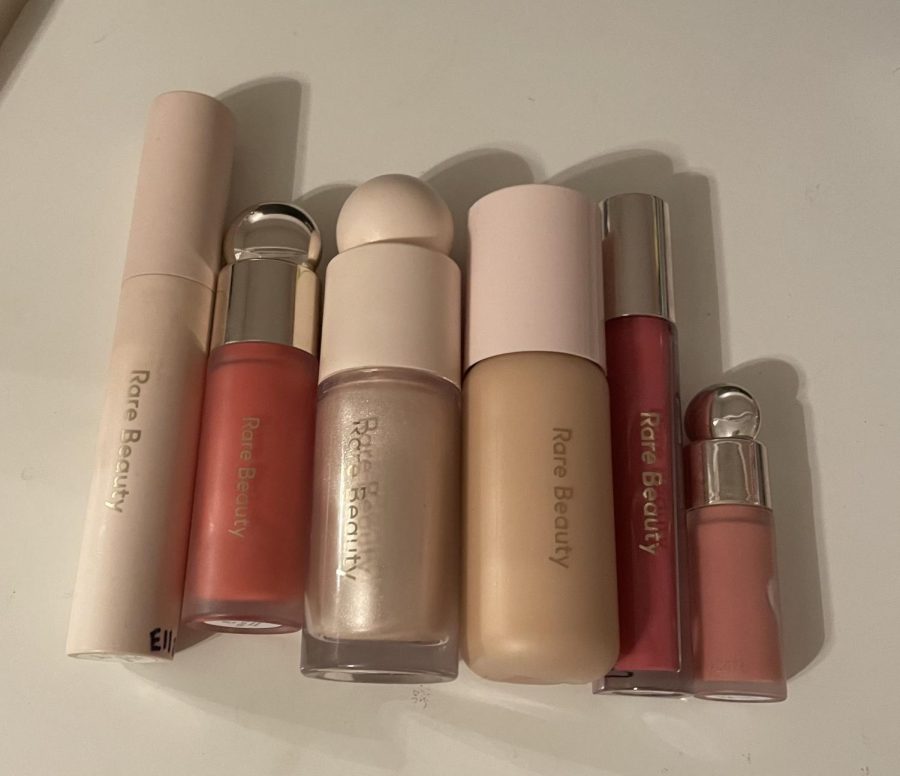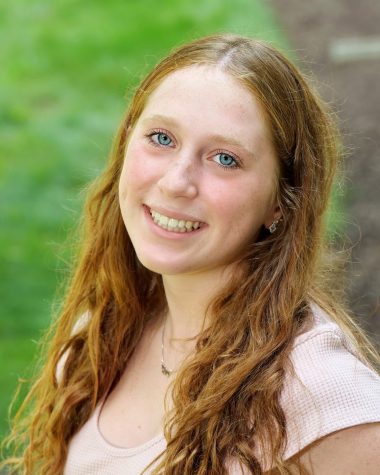Selena Gomez’s makeup brand “Rare Beauty” supports mental health services
December 14, 2022
The moment a consumer hits the dark purple “Pay now” button on rarebeauty.com, most of that money goes to a lipstick or a mascara. But 1% goes to mental health services, such as curriculums and support in schools like JDS.
Founded by actress, pop star and entrepreneur Selena Gomez, the Rare Impact Fund is in partnership with Gomez’s makeup brand Rare Beauty. 1% of all sales go to the fund, which then donates the money to various mental health organizations. Since its launch in 2020, the fund has raised $4 million in pursuit of the brand’s $100 million goal.
Rare Beauty’s Vice President of Social Impact and Inclusion Elyse Cohen shared in a Zoom interview that the Rare Impact Fund is Gomez’s passion project. In an interview two years ago with fellow pop star and actress Miley Cyrus, Gomez shared her diagnosis of bipolar disorder. Cohen said that receiving that diagnosis was a relief for Gomez because it helped her understand her emotions
Cohen said that following the diagnosis, Gomez found “her purpose, which she believes is to help talk about and change the conversation around mental health, and to use every single resource and asset that she has.” As someone who struggled with mental health herself, the topic is very close to Gomez’s heart, Cohen said.
The beauty industry often times exhibits toxicity in its perpetuation of beauty standards and requirement of perfection. Cohen said that Gomez wanted to move away from this in her creation of Rare Beauty, and did this in one way by launching the Impact Fund.
Gomez started to “shift the narrative around the beauty industry that historically has focused on covering up what makes you unique and your imperfections and really embracing who you are,” Cohen said.
Makeup was originally created to “cover up” imperfections, and Gomez wants to change that idea.
One way Gomez aims to help youth mental health is by providing mental health services in schools. Cohen explained that mental health services can range from aiding or creating school mental health curriculums to building programs for struggling students.
Freshman Ella Arking also believes that mental health amongst young people should be addressed in a school setting.
“They [mental health services] are really important because school causes a lot of stress for a lot of people, and to just know that you’re getting graded on things and people are watching you is really scary,” Arking said. “And not only that but also the social aspect of it. When you’re in school, your entire life revolves around it.”
Just like makeup that many students wear every day, stress is almost always present in JDS. To help audiences like the students at JDS, the Rare Impact Fund raises awareness to de-stigmatize mental health on its Instagram. The Rare Beauty Instagram promotes its products as well as mental wellness. They post wellness resources, such as tips to turn around a bad day, affirmations, and kind messages to anyone who might be struggling with their mental health.
“There was such a stigma for such a long time that the only diseases that existed were physical,” said guidance counselor Marnie Lang. Lang thinks that talking about mental health is essential in creating an awareness and recognition of diseases. There has been a belief that diseases can only be physical, and it’s important to break that down, said Lang.
“I think encouraging people to be able to talk about how they’re feeling both physically and mentally is so important because otherwise, you’re missing a huge portion of what’s going on with a person and how they’re interacting with the world.”
Students are especially vulnerable to a decline in mental health. Lang said that the stress of school work can cause mental health to go down, which then leads to worse performance in school, perpetuating this cycle.
The Rare Impact Fund supports organizations that can help break this cycle. As of fall of 2022, the Rare Impact Fund has given money to 14 grantees such as JED and The Trevor Project.
In terms of what Cohen and Gomez hope to achieve in the future, it’s less about the money and more about the impact.
“We don’t need to be the ones getting recognition,” Cohen said. “We just want to know that we’ve made an impact. Made an impact with people we’ve reached, made an impact by seeing the comments and the feedback that we receive.”
The Rare Impact fund is making a large and much needed step towards a healthier world.
“A lot of it starts with changing the culture and the stigma,” Cohen said. “And that happens by talking more and people learning that there are so many people going through the same things.”








